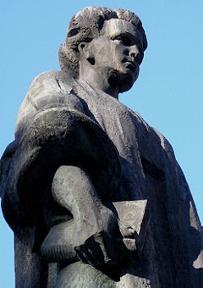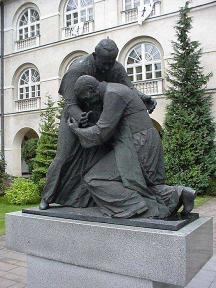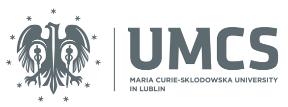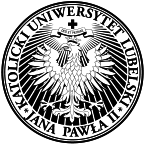The list of accepted abstracts and Invited speakers. The programme will be constructed once we have completed registration.
Invited Speakers:
Magdalena Wrembel (Adam Mickiewicz University, Poznań)
Acquisition of speech from a multilingual perspective
John Harris (University College London)
Gauging segmental prominence
Jerzy Rubach (Iowa University / Warsaw University)
Gliding and Glide Insertion in Kurpian
1.
The role of voice quality in the Polish laryngeal contrast
Geoff Schwartz, Maral Asiaee, Kamil Kaźmierski, Ewelina Wojtkowiak
Adam Mickiewicz University
2.
Is regressive voice assimilation a mirage?
Geoff Schwartz
Adam Mickiewicz University
3.
Prenasalized stops in Kirundi: an exploratory acoustic study
Sybil Vachaudez & Marijn van ’t Veer
University of Amsterdam
4.
Narrow prosodic-evolutionary trajectories
Roland Noske
University of Lille
5.
The Phonetic Substance of [RTR]: A Case Study of Shira Yugur (Mongolic)
Chenming Gao
University of Cambridge
6.
Effects of structural context and lexical frequency on the duration of nasal consonants
in English
Ian Clayton
University of Nevada, Reno
7.
Word-final obstruent-sonorant clusters in Upper Sorbian
Tomasz Łuszczek
University of Warsaw
8.
The stressability scale for English
Péter Szigetvári
Eötvös Loránd University Budapest
9.
Phonetics and phonemics: what one of the pronouncing dictionaries tells us
Jean-Pierre Gabilan
Savoy Mont Blanc University
10.
Quantity in North Welsh Disyllables: Between Phonology and Phonetics
Florian Breit & Jacob Rando
Bangor University, University College London
11.
The voicing–nasality relation without |L| as a laryngeal element
Péter Őri
Eötvös Loránd University Budapest
12.
Underspecification in the English Vowel System
Christian Uffmann
University of Düsseldorf
13.
The Sonorancy of Russian /v/ in an Optimality Framework
Jillian Warman
University of Western Ontario
14.
The internal structure of /r/ in Taznatit Berber
Amazigh Bedar
University of Nantes
15.
Using Machine Learning to Document Phonemes
Michael Dorin
University of St. Thomas
16.
Acceptability study of Polish o:u alternation
Jakub Dunin-Borkowski
University of Warsaw
17.
Getting access to the element content of consonants: the colors of schwa in Taqbaylit
Lucie Quellec
University of Nantes
18.
An experimental study of dynamic laryngeal phonological processes
in multilingual speech
Zsuzsanna Bárkányi & Zoltán G. Kiss
Eötvös Loránd University Budapest
19.
Duration-based identification of Polish geminates by native speakers
Arkadiusz Rojczyk & Andrzej Porzuczek
University of Silesia
20.
Towards defining pronunciation difficulty of word-initial two-consonant clusters in Polish
Jolanta Szpyra-Kozłowska
Maria Curie-Skłodowska University
21.
Meryl Streep’s „Polish” accent in „Sophie’s Choice.” Farewell to a myth
Jolanta Szpyra-Kozłowska & Agnieszka Bryła-Cruz
Maria Curie-Skłodowska University
22.
On some issues related to phonological typologies of laryngeal systems.
The case of Slavic.
Eugeniusz Cyran
John Paul II Catholic University of Lublin
23.
Ashley who? Phonetic reduction in Prince William's casual speech
Piotr Steinbrich
John Paul II Catholic University of Lublin
24.
Acoustic correlates of broad and narrow focus in Polish and English
Mariola Kaszycka
John Paul II Catholic University of Lublin
25.
Two-level containment and the morphophonology of Polish palatalization
Sławomir Zdziebko
John Paul II Catholic University of Lublin






